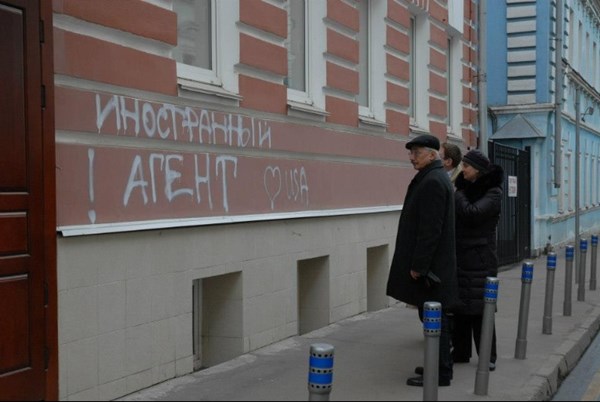Russian Justice Ministry defines ‘political activity’ to amend ‘Foreign Agent Law’
In 2012, the Russian State Duma adopted a law requiring all nongovernmental organizations engaged in political activity that receive funding from abroad to register as “foreign agents” with the Ministry of Justice, a designation that severely hinders an NGO's ability to operate in the Russian Federation. While the law initially provided a vague definition of "political activity", the Ministry of Justice adopted a new amendment on Friday defining it as any work in the sphere of federal or municipal policies, defense, foreign policy, human rights, and civil rights.
The amendment specifies that NGOs are to be classified as “foreign agents” if they engage in political activity including “the participation in the organization and holding of public gatherings in the form of meetings, rallies, demonstrations, marches, picketing, or various combinations of these forms, including the organization of public discussions and performances.”
According to the Justice Ministry’s amendment, political activity also includes "observing elections, referendums… sociological research… [as well as] public appeals to state agencies, local governments, their officials, and other actions affecting their activities, including those aimed at the adoption, amendment, or repeal of laws or other legal acts… [as well as] the spread of assessments, including those through the use of modern information technologies, of decisions undertaken by state bodies and their policies.”
Since 2014, 113 organizations have been designated as “foreign agents”, a term frequently found in Soviet-era rhetoric and is widely associated with espionage in Russia. Many of these NGOs have since ceased their operations in Russia on their own accord, while others have been banned entirely due to the follow-up law in May of 2015 that gives prosecutors the power to declare foreign and international organizations "undesirable" in Russia and shut them down.
In November of last year, two of George Soros’ charities, the Open Society Foundations and the Open Society Institute Assistance Foundation, were deemed “undesirable organizations” according to the follow-up law and effectively banned from operating in Russia, leading the Komi Ministry of Education to order the removal of books published with funding from these organizations from university libraries in the region. Prior to their cessation of operations in November, Soros’ organizations had given more than $1 billion in grants to more than 64,000 Russian teachers, professors, and students.
The law has received widespread commendation, as critics view the bill as a blatant obstruction of the promotion of fundamental human rights in Russia.
Supporters of the bill and the Russian media view the legislation as an important measure to remove “detrimental” foreign influence from the country’s political system and to eradicate elements that are “alien to Russian ideology”. Moreover, supporters of the law view it as moderate, saying it does not include “work in the field of science, culture, art, [or] health care.”
